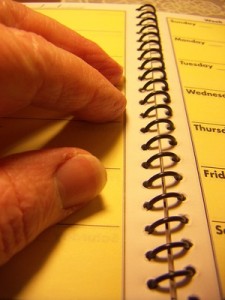 During my first year of teaching young teenagers, I went to one of those after-school parties our teachers’ organization was so fond of sponsoring. I recall talking with one teacher who enthusiastically told me of some innovative approach she was using. It did, indeed, sound like fun for all. The teacher was involved with the kids while they were busy and on task with little room for misbehavior or distractions. But when I asked how she could tell if the kids were learning, her only response was, “Oh, I can tell.” She obviously had a great activity plan, but no lesson plan.
During my first year of teaching young teenagers, I went to one of those after-school parties our teachers’ organization was so fond of sponsoring. I recall talking with one teacher who enthusiastically told me of some innovative approach she was using. It did, indeed, sound like fun for all. The teacher was involved with the kids while they were busy and on task with little room for misbehavior or distractions. But when I asked how she could tell if the kids were learning, her only response was, “Oh, I can tell.” She obviously had a great activity plan, but no lesson plan.
Even experienced teachers who can speak extemporaneously on any topic, or walk into a classroom and devise a lesson on the spot, need to to have written lesson plans. At the very least, a constantly updated diary of your daily activities keeps you from looking foolish when someone asks, “What did we do last Tuesday?”
Of course, a proper lesson plan is far more than that. In fact, a simple statement of what you are going to do or what you did is putting the cart before the horse. Whether you actually write it down or not, your lesson plan must begin with a statement of what the kids will be expected to learn. This is the learning objective. A learning objective generally has three parts.
First, it must include a statement of the conditions under which the task will be performed. Second, the objective describes some level of performance expected of the student. Notice the word “performance” in the description. In order for you to test whether or not the student has mastered the objective, it must require some demonstrable act. Finally, you must state what will be an acceptable level of performance.
Go to Learning Objectives





